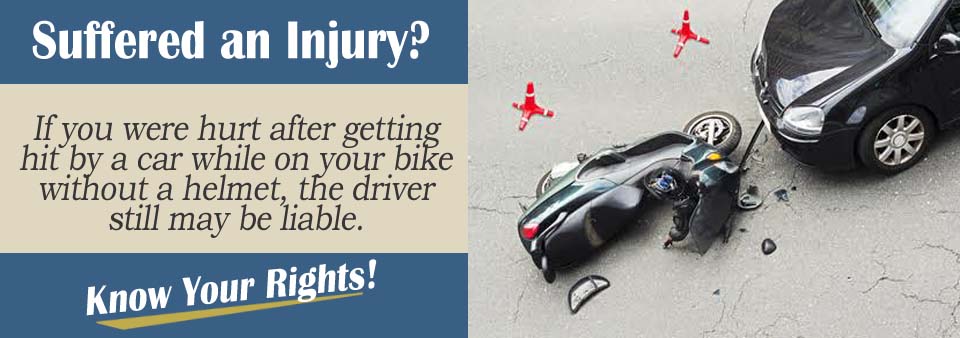Motorcycle accidents comprise a large portion of personal injury suits filed annually. Unlike motor vehicles, very little stands between the motorcyclist and the road. Traveling at a high speed with no physical barrier between you and the road can prove to be deadly in an accident.
One of the larger controversies surrounding motorcycling involves the requirement to wear a helmet, and many lawmakers argue it should be a requirement. However, helmets are not required in all states, but this does not mean your claim for personal injury damages will not be affected by whether you wore a helmet.
We have asked attorney, Alaina Sullivan, about what you should do. Here is what she had to say:
Know Your State’s Law
It is important you know your state’s law on driving a motorcycle without a helmet. Nineteen states and the District of Columbia have laws in place that require motorcyclists to wear helmets. Twenty-eight states have laws requiring only certain groups of motorcyclists to wear helmets.
Most of these states require any drivers or riders below the age of 18-years-old to wear a helmet. Only three states, including Illinois, Iowa and New Hampshire do not have any type of motorcycle helmet law. Before you get on your bike and take off without your helmet, make sure the state you are in does not require you to wear a helmet.
Failure to Wear a Helmet

If your law does not absolutely require you to wear a helmet, not wearing one will not keep you from pursuing damages for injuries sustained in an accident. Even in the states where you are required to wear a helmet, you are not barred from pursuing a claim. In those states, just keep in mind that your violation of the law does create a presumption of negligence.
That negligence could reduce the amount you are seeking in damages. However, if the driver of the car was negligent as well, he or she cannot be kept from liability simply because of your negligence.
Duty to Reduce Injuries
Another point to keep in mind is your damages awarded could be reduced if the court finds that not wearing the helmet made your injuries worse than they would have been in the event you did wear a helmet.
For instance, if the other side were to accurately show that your head injury would not have been as serious or eliminated had you worn a helmet, that factor could be considered when deciding your claim.
Comparative Negligence
Along the same lines of a duty to reduce your injuries, in certain situations, courts and insurance companies may find that you hold some responsibility for your injuries. This is otherwise known as comparative negligence. It means that if the court finds you are “comparatively negligent,” then you will not receive the full extent of damages you are requesting, reduced by your portion or degree of fault.
In terms of a jury trial or bench trial, if the court or jury finds that a reasonable person would have worn a helmet in the same or similar situation, you could be found negligent to a certain extent. All that means is your damages award could be reduced by a certain amount. Being found comparatively negligent does not mean you lose any type of compensation altogether.
Contact an Attorney Today
A licensed personal injury attorney will be able to evaluate your case and determine if you have a claim against the other party’s insurance company. For the best chance of receiving the compensation you need to pay for medical bills, auto body bills, and pain and suffering, you should speak with a personal injury attorney in your area today.